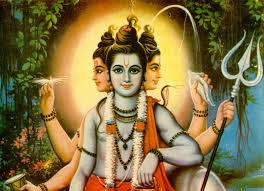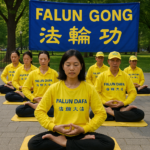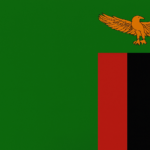
The word “Hinduism” actually has no real meaning because Hinduism was not founded as a religion. The name “Hindu” is given by the people outside of the India, especially Greeks and Arabs, to those living in the vicinity of “Sindhu” river. So, the way of life those people were following is called “Hinduism.”
Hinduism is a religion of 330 million gods.
Hinduism originated in India. Hinduism is largely based on the teachings from Vedas.
Hindus believe that the soul can be reincarnated, undergoing a cycle of rebirth.
Hindus hold the belief of the four Vedas high in their mind. This is considered the most ancient scripture throughout the world.
Lord Brahma, Lord Vishnu, and Lord Shiva are the creator, protector, and destroyer respectively. These are the three main deities in Hinduism. Besides them, Lord Ganesha, Lord Krishna, Lord Hanuman, Lord Rama, and Goddess Parvati are the most popular deities in Hinduism.
People who follow Hinduism are called as “Hindus.” Hinduism is also known as “Hindu Dharma” (हिंदू धर्म), ” Hindu Religion, “Sanatan Dharma (Eternal Religion),” “Vedic Religion,” or Vedic Dharma.
The religious tradition of Hinduism is responsible for the creation of such concepts and practices as Yoga, Ayurveda, Vastu, Jyotish, Yajna, Puja, Tantra, Vedanta, Karma, etc.
Hindus believe in one God named as “Brahman” but view other Gods and Goddesses as manifestations of Him. Therefore, in practice, they worship more than one God. Most Hindus worship God in the form of an idol. Rivers, mountains, trees, animals, and natural things which are useful for a human being are revered in Hinduism. Cow is the most revered animal for Hindus.
Hinduism is the world’s oldest known religion. History of Hinduism can be traced back to 5000-10,000 B.C.
Most of the Hindus do not eat beef and/or pork. They also do not eat non-vegetarian food on auspicious days. Hinduism strongly advocates vegetarianism. Food is highly revered and wasting the food is considered as a very bad habit.
Hindus believe that a soul is able to undergo numerous lifetimes within a physical body. All of the past lives that you have led, contribute to the person you are today.
Karma is the universal principle of cause and effect. Our actions, both good and bad, come back to us in the future, helping us to learn from life’s lessons and become better people.
There is no concept of Creation and a Creator. The world came from God, exists in God and will return back to God, just like waves arise from the ocean, exist in the ocean and subside back into the ocean.
The place of worship of Hindus is called as a temple.
Salvation is the ultimate goal of a Hindu’s life.
It is the third largest religion of the world with more than 1 billion followers.
Reincarnation is the phenomenon where the immortal soul is continuously born and reborn in any one of 8,400,000 life-forms until it attains moksha. Moksha is ultimate liberation.
Hinduism has no single founder. It has been evolving over the thousands of years and will continue to.
Most of the Hindus live in India, Nepal, and Sri Lanka with considerable presence in all other parts of the world also. About 85% of Hindus live in India. That is why India is also called as “Hindustan.”
Hindus believe that all living entities have a soul, or ãtma. Each is eternal – it was never created and will never perish. The ãtmã is characterized as unchanging truth, consciousness and bliss.
Hinduism is not a religion but a way of life. Hinduism grants you a healthy lifestyle. The Hindu practices like bath in the morning, do Yoga, stay away from meat etc. promote health and hygiene.
According to Hinduism, as there are four seasons in a year, there are four Yugas namely Satya-Yuga, Treta-Yuga, Dvapara-Yuga, Kali-Yuga. At the end of a full cycle of four Yugas, the life on the earth comes to an end (though not completely) and a new era starts. The humanity enters into a new era. The present era is known as Kali-Yuga i.e. Dark Age.
Hinduism consists of different sects like Shaivism, Vaishnavism, and Shaktism. The common people follow all the three sects collectively worshiping Lord Shiva, Lord Vishnu, and Devi.
Frequently Asked Questions about Hinduism:
1. What is Hinduism?
- Hinduism is not a single, unified religion but rather a family of diverse traditions and philosophies.
- It emphasizes Dharma (righteousness), Karma (action and consequence), and Samsara (the cycle of birth, death, and rebirth).
- It’s known for its rich mythology, complex cosmology, and various paths to spiritual liberation (Moksha).
- It is often described not just as a religion, but a way of life.
2. Who is a Hindu?
- There’s no single definition. Broadly, a Hindu is someone who adheres to the beliefs and practices of Hinduism.
- This can encompass a wide spectrum of individuals with varying interpretations of the scriptures and traditions.
- Hinduism is also known as Sanatana Dharma, meaning “eternal dharma”.
3. Why are there so many gods in Hinduism?
- Hinduism recognizes a multitude of deities, but many Hindus believe in one supreme reality, Brahman, which manifests in various forms.
- These deities represent different aspects of Brahman and serve as focal points for worship and meditation.
- The Trimurti, Brahma (the creator), Vishnu (the preserver), and Shiva (the destroyer), are considered the primary manifestations.
- It is important to remember that many Hindus view these deities as different aspects of one supreme being.
4. What are the key concepts of Hinduism?
- Dharma: Righteous duty, moral order, and ethical conduct.
- Karma: The law of cause and effect, where actions have consequences in this life and future lives.
- Samsara: The cycle of birth, death, and rebirth.
- Moksha: Liberation from Samsara, the ultimate goal of spiritual practice.
- Atman: The soul, the individual’s true self.
- Brahman: The ultimate reality, the universal consciousness.
5. What are the sacred texts of Hinduism?
- Hinduism has a vast collection of sacred texts, including:
- The Vedas: The oldest scriptures, containing hymns, rituals, and philosophical insights.
- The Upanishads: Philosophical texts that explore the nature of reality and the self.
- The Bhagavad Gita: A philosophical dialogue within the epic Mahabharata, emphasizing Dharma and devotion.
- The Puranas: Mythological stories and genealogies of deities.
- The Ramayana and Mahabharata: Epic narratives that convey moral and ethical teachings.
6. What is the concept of reincarnation?
- Reincarnation, or Samsara, is the belief that the soul (Atman) transmigrates from one life to another.
- The soul’s journey is influenced by Karma, where actions in one life determine the circumstances of the next.
- The goal is to break free from this cycle and achieve Moksha.
7. What is the significance of yoga and meditation in Hinduism?
- Yoga and meditation are integral to Hindu spiritual practices, aiming to achieve physical, mental, and spiritual well-being.
- They help to cultivate self-awareness, control the mind, and connect with the divine.
- Yoga is a holistic discipline that encompasses physical postures, breathing exercises, and meditation.
8. What is the caste system?
- The caste system is a social hierarchy that historically divided Hindu society into four main categories (Varnas): Brahmins (priests), Kshatriyas (warriors), Vaishyas (merchants), and Shudras (laborers).
- It is important to understand that the caste system has caused much social injustice, and modern day Hinduism, and laws within India, work to remove the negative aspects of the caste system.
- Many modern Hindus reject the rigid and discriminatory aspects of the traditional caste system.
9. What are some major Hindu festivals?
- Hinduism celebrates numerous festivals, including:
- Diwali: The festival of lights, symbolizing the victory of good over evil.
- Holi: The festival of colors, celebrating the arrival of spring.
- Navratri: A nine-night festival dedicated to the goddess Durga.
- Shivratri: A festival dedicated to Lord Shiva.
10. What is the meaning of “Sanātana Dharma”?
- “Sanātana Dharma” translates to “eternal dharma” or “everlasting righteousness.”
- It emphasizes the timeless and universal principles that underlie Hindu beliefs and practices.
- It is a term that many Hindus prefer, as it encompasses the wide and diverse nature of their faith.









